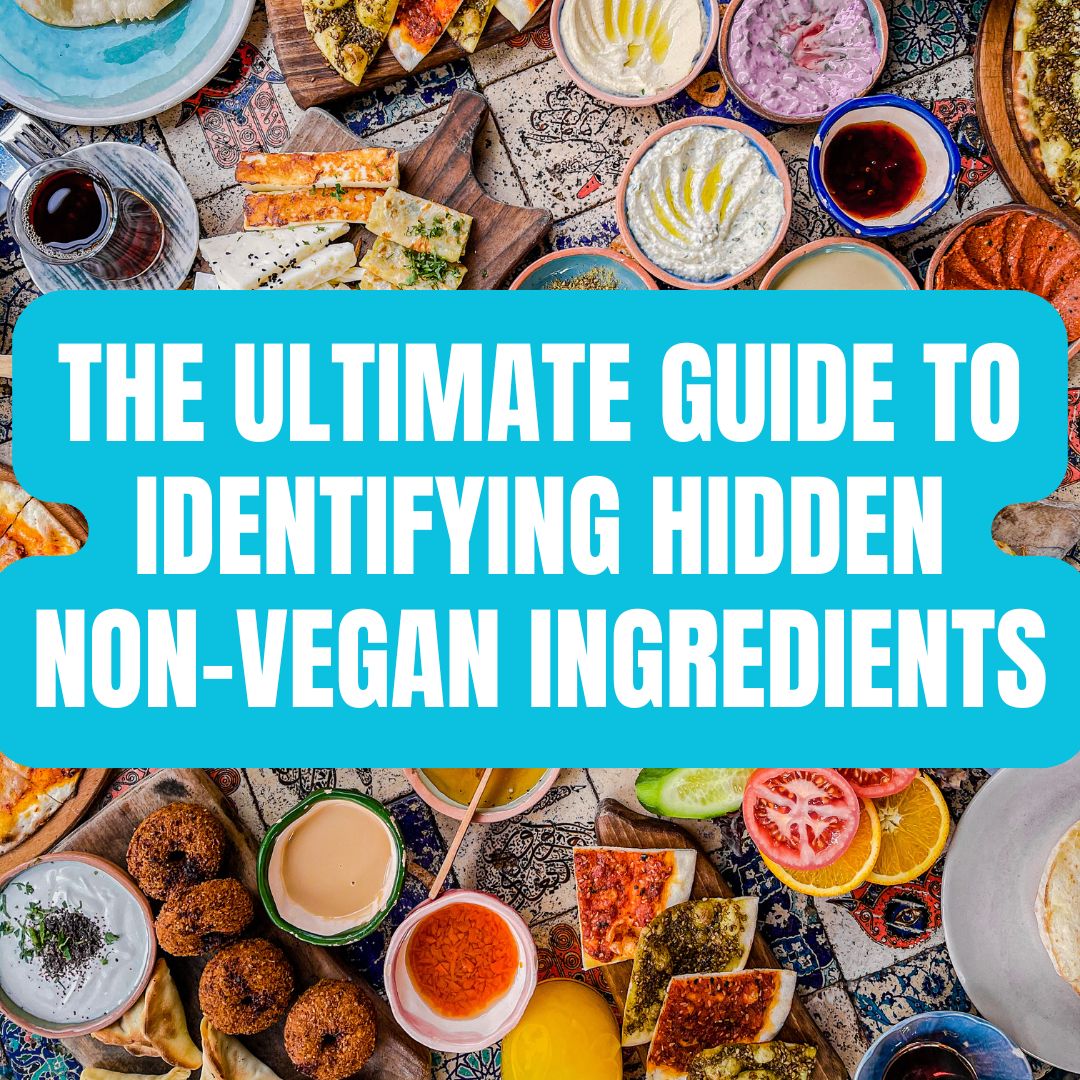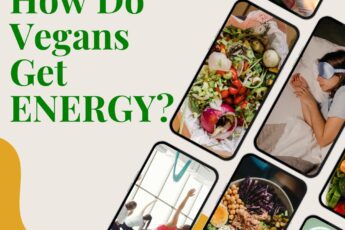Embarking on a plant-based journey is a fantastic choice for your health and the planet. Avoiding obvious animal products is a great first step, but understanding hidden non-vegan ingredients helps you make truly informed choices. In this guide, we’ll uncover these lesser-known ingredients and explore ways to navigate the “vegan tax” when shopping for plant-based foods.
Unveiling Hidden Non-Vegan Ingredients
Most people recognize that beef, chicken, and dairy aren’t plant-based. However, some animal-derived ingredients are less obvious. Ingredients like whey, rennet, and certain enzymes frequently sneak into processed foods, baked goods, and even supplements. Learning to spot them on labels empowers you to align your diet with your values.
Lesser-Known Non-Vegan Ingredients
Honey, Gelatin, Casein, and Whey
- Bees produce honey, making it a non-vegan ingredient.
- Manufacturers use gelatin, derived from animal collagen, in gummies and marshmallows.
- Casein and whey, both milk proteins, frequently appear in processed foods and supplements.
Instead, opt for plant-based alternatives like agave syrup, agar-agar, soy protein, or pea protein.
Rennet, Lipase, Amylase, and Emulsifiers
- Cheese-makers extract rennet from calf stomachs to produce cheese.
- Food manufacturers use lipase, sometimes from animal sources, to enhance flavor.
- Amylase aids in breaking down starches, but it may come from plant-based or animal-derived sources—check the label.
- Products often contain glycerol monostearate and glycerol monopalmitate, emulsifiers that may come from animal sources. Look for explicitly vegan versions.
Isinglass and Bone Char in Food Processing
- Brewers use isinglass, derived from fish bladders, to clarify beer and wine.
- Sugar producers sometimes refine sugar with bone char, made from animal bones.
Carmine (Cochineal Extract) and Shellac
- Candy and juice manufacturers use carmine, a red dye made from crushed beetles.
- Shellac, a glaze from insect secretions, adds shine to candies and produce.
Lanolin and L-Cysteine
- Supplement makers extract lanolin from sheep’s wool for vitamin D supplements and some lip balms.
- Some bread products contain L-Cysteine, an amino acid derived from animal feathers or hair.
Caseinate and Omega-3s
- Caseinate (sodium or calcium caseinate), a dairy protein, appears in creamers and protein powders.
- Fortified foods like orange juice may contain omega-3s sourced from fish instead of plants.
Natural Flavors
- The term “natural flavors” sometimes includes animal-derived ingredients, such as castoreum from beavers.
Quick Reference List of Hidden Non-Vegan Ingredients and Alternatives
| Ingredient | Description | Plant-Based Alternative |
|---|---|---|
| Honey | Produced by bees | Agave syrup, maple syrup |
| Gelatin | Derived from animal collagen | Agar-agar, pectin |
| Casein and Whey | Milk proteins | Soy protein, pea protein |
| Rennet | Enzyme from calf stomachs used in cheese-making | Microbial or plant-based rennet |
| Lipase | Enzyme that can be animal-derived | Microbial lipase |
| Amylase | Enzyme that may be animal-derived | Plant-based amylase |
| Glycerol Monostearate and Monopalmitate | Emulsifiers that may be animal-derived | Plant-based emulsifiers |
| Isinglass | From fish bladders, used to clarify beer and wine | Bentonite clay, pea protein |
| Bone Char | Used to refine sugar | Unrefined or beet sugar |
| Carmine (Cochineal Extract) | Red dye from crushed beetles | Beet juice, synthetic dyes |
| Shellac | Glaze from insect secretions | Carnauba wax |
| Lanolin | From sheep’s wool, found in supplements and cosmetics | Plant oils (e.g., coconut oil) |
| L-Cysteine | Amino acid from feathers or hair, used in bread products | Synthetic or plant-based cysteine |
| Caseinate | Dairy protein in creamers and protein powders | Almond milk, coconut milk |
| Omega-3s | May come from fish oils in fortified foods | Flaxseed oil, algae-based supplements |
| Natural Flavors | Can include animal-derived ingredients | Specify plant-based flavors |
Navigating the “Vegan Tax”
Recognizing hidden non-vegan ingredients might make you want to buy only foods labeled “vegan.” However, that often means fewer options and higher costs. Vegan-labeled foods frequently carry a “vegan tax,” similar to how keto or organic products tend to be more expensive. Some vegan foods don’t have the label for various reasons:
- Manufacturers may not want to pay for certification.
- The food is processed in a shared facility with non-vegan items.
- Brands avoid labeling their products as vegan to appeal to a broader audience.
Have you ever ordered oat or soy milk at a coffee shop and paid extra? Or noticed that a certified vegan product costs more than a non-certified but still vegan one? The article IT’S TIME TO END THE VEGAN TAX by Livekindly explores this issue in detail.
Instead of always buying labeled vegan products, consider these cost-saving tips:
- Buy in bulk or make your own staples. Homemade plant-based foods can be more affordable.
- Shop smart. Look for sales, discounts, and fresh produce at farmers’ markets.
Finding a Balance in Your Plant-Based Journey
Avoiding non-vegan ingredients is easiest when you stick to whole plant foods or buy explicitly labeled vegan products. However, that’s not always realistic. Striking a balance allows you to maintain a sustainable plant-based lifestyle.
Here are some simple steps to take:
- Start by reading labels carefully. Look for common non-vegan ingredients and their alternatives.
- Research brands that align with your values. Some offer plant-based options without the extra cost.
- Use online resources. Websites like PETA provide extensive lists of animal-derived ingredients.
- Stay flexible. Choose a level of strictness that fits your goals and lifestyle.
A plant-based lifestyle doesn’t have to be all or nothing. Some people are okay with minor non-vegan ingredients or foods made in shared facilities. The key is making choices that feel right for you.
Want to see where you fit on the plant-based spectrum? Take the PLANT-BASED ROADMAP QUESTIONNAIRE to clarify your goals and level of strictness.
Knowledge is power. By learning about hidden non-vegan ingredients, you can read labels with confidence and make informed decisions. Whether you choose a strict or flexible approach, every plant-based choice makes a difference. Let’s create a more compassionate and sustainable world, one mindful decision at a time.
For a comprehensive list of animal-derived ingredients and their alternatives, you can refer to PETA’s resource: ANIMAL-DERIVED INGREDIENTS RESOURCE | LIVING – PETA. This reputable source provides additional credibility and a deeper dive into hidden animal-derived ingredients.






